In part one of this blog, we discussed choice as a mindset and choices based on probability vs possibility. In this second part, we focus more on choice overload, assumptions and how to be an effective choosy chooser.
Choice puts control in your hands. Choice is about possibility; what can be vs. what will be. Dr. Sheena Lyengar is an expert on choice. Her research shows that most Americans suffer not from a lack of choices, but rather from choice overload. We are at times paralyzed by the decision to choose. Think of a typical grocery store shopping experience. In some stores there are over 200 brands of mustard, 300 types of jams, and 100 brands of olive oil. In her research, she asks the question: Does more choice make you a buyer? The answer is interesting.
In a study, Dr. Lyengar’s team set up two different jam displays in the front of a supermarket for people to participate in a taste test. One display had 24 different choices while the other had only six. Of the people who stopped to taste, 60% chose the table with more choices. There seemed to be a real interest in the opportunity to try out different flavors. But, when they looked at who actually bought jam, the table with just six choices had a 30% sales rate while the 24 flavors table sold at just a 3% rate. Lowering the choices increased the sales. The same effect is seen in investments. The more choices a company gives an employee, the less likely they are to invest. It seems counterintuitive but it’s true. Why? We often choose not to choose when there are too many choices. The fact is that more information actually undermines your ability to choose wisely.
There are negative consequences to having too many choices in life. Psychologists find that excessive choice can cause anxiety and depression. They include delaying choice,fear of making the wrong choice, and in the end being less satisfied with your choice even though you made it. When we are faced with too many choices we often set high expectations about how beneficial, exceptional or pleasurable the particular product or service we purchased will make us feel. In the field of medicine, hard choices around major medical problems create an incredible amount of stress and anxiety. One study showed that while 65% of people say they would like to choose the treatment if they got cancer, in reality, only 12% actually do want to choose when they get it. In the end it creates paralysis of analysis. The research suggests that though we believe in the importance of individual choice, we actually do better when the choices are narrower and we have help, guidance, and trusted advice.
Here are three key (potentially wrong) assumptions about choice:
- If a choice affects you, you should be the one to make it. It’s the individual freedom mantra: No decision about me without me.
- The more choices I have, the better chance I have in making the best choice or the right choice.
- You must never say no to choice.
What people must understand is there is no choice regarding the fact that the world keeps moving forward. A wise man once said, “I know one thing about life…It goes on.” That is a fact, life goes on. You will probably graduate, lose a loved one, fail a test, miss a free throw, crash your car and miss an appointment. No matter, things keep moving forward. There is no Groundhog’s Day in life. You don’t get do-overs. As life goes on, we have the opportunity to choose. Our choices matter.
Thekey concept here is to be choosy about choosing. Here are some key ideas to help you become a more choosy chooser. They come from author Barry Schwartz who wrote the book: The Paradox of choice.
- Choose when to choose.Review some recent decisions you’ve made. Itemize the steps, time, research, and anxiety that went into making the decisions. Remind yourself how it felt to do that work. Did your decision benefit from the work you did?
- Be a chooser, not a picker. Choosers are people who are able to reflect on what makes a decision important, on whether saying no is the best choice, on whether a new option should be created and on what the choice says about the chooser. Choosers create opportunities. Pickers select from what is available. When time is short, or there are too many choices, we pick. Good decisions take time. So to become a better chooser, take some time to create a list of goals, values and desires you wish to fulfill. Shorten or eliminate deliberations about decisions that aren’t important. Work on the things that are important but not urgent.
- Learn to accept “good enough” when there seem to be too many choices. Figure out a strategy to find good enough and then apply it.
- Think about the high cost of always comparing your choice to “what could have been.” The attractiveness of unchosen options will always detract for the satisfaction derived from the chosen one. So, unless you are truly unsatisfied, stick with what you got. Don’t be tempted by “new and improved.” Don’t worry that you are missing out.
- Make your decisions final. When a decision is final, we engage in psychological processes that optimize our feeling about the choice we made.
- Practice an attitude of gratitude. Be grateful for the good your choices bring and disappointed less by what is bad about them.
- Have reasonable expectations.
It is prudent to think about not only what you desire, but what you can excel at. The two may be different, but choice gives you joie de vivre. It creates possibilities. It is in your possibilities that you find passion, drive, desire and harmony.
What do you choose?


















